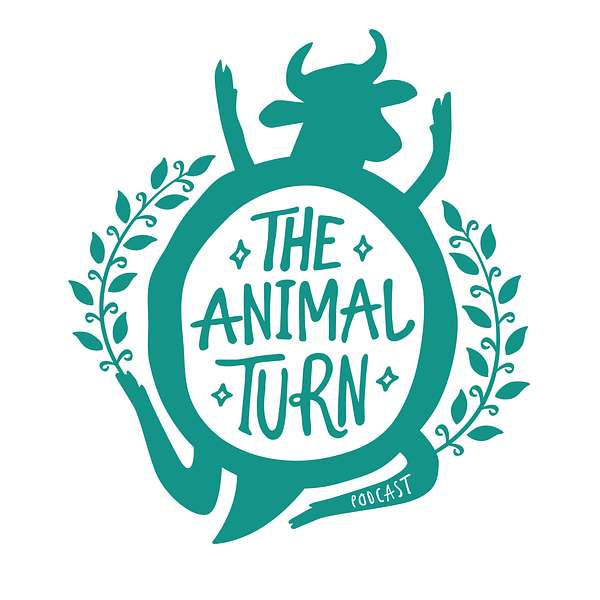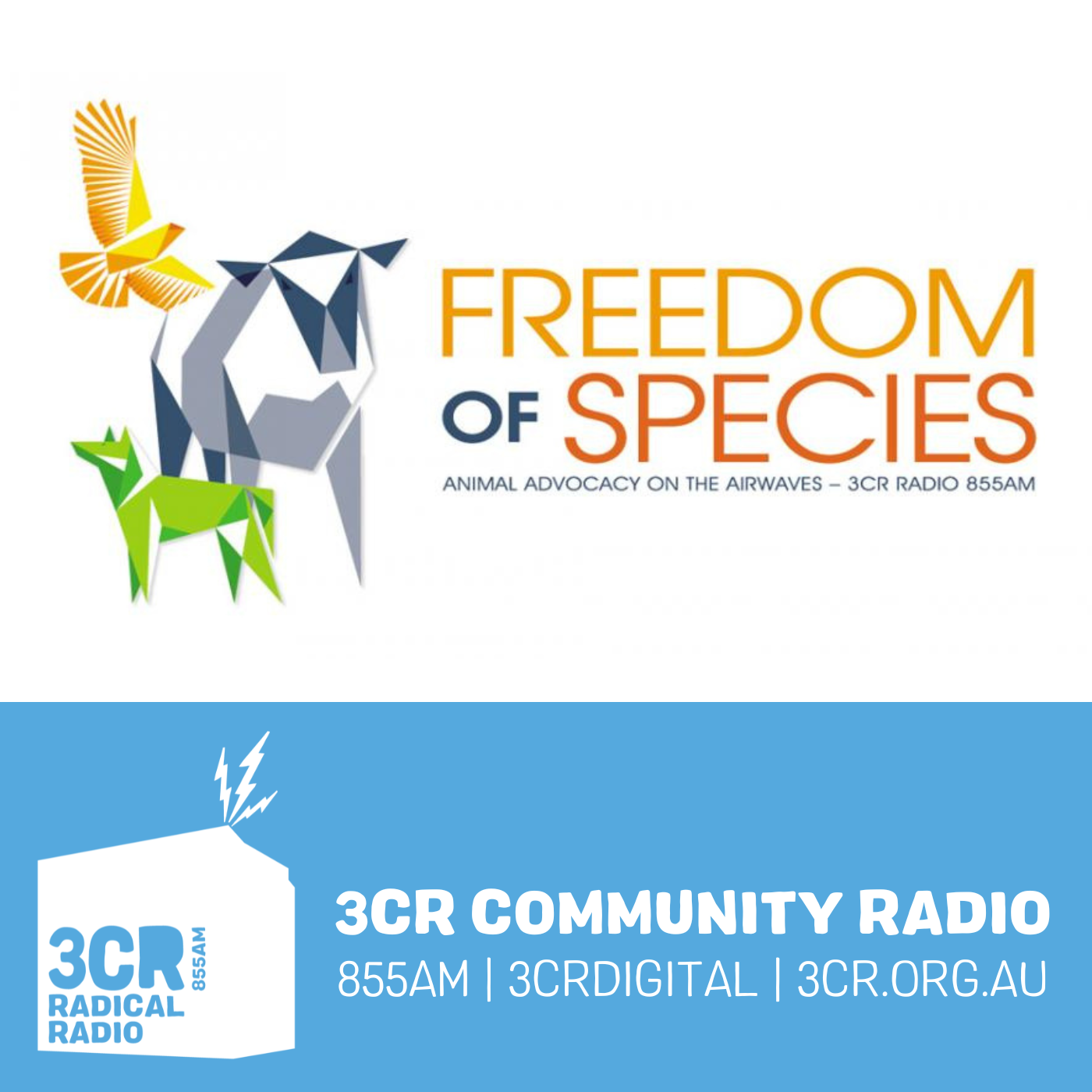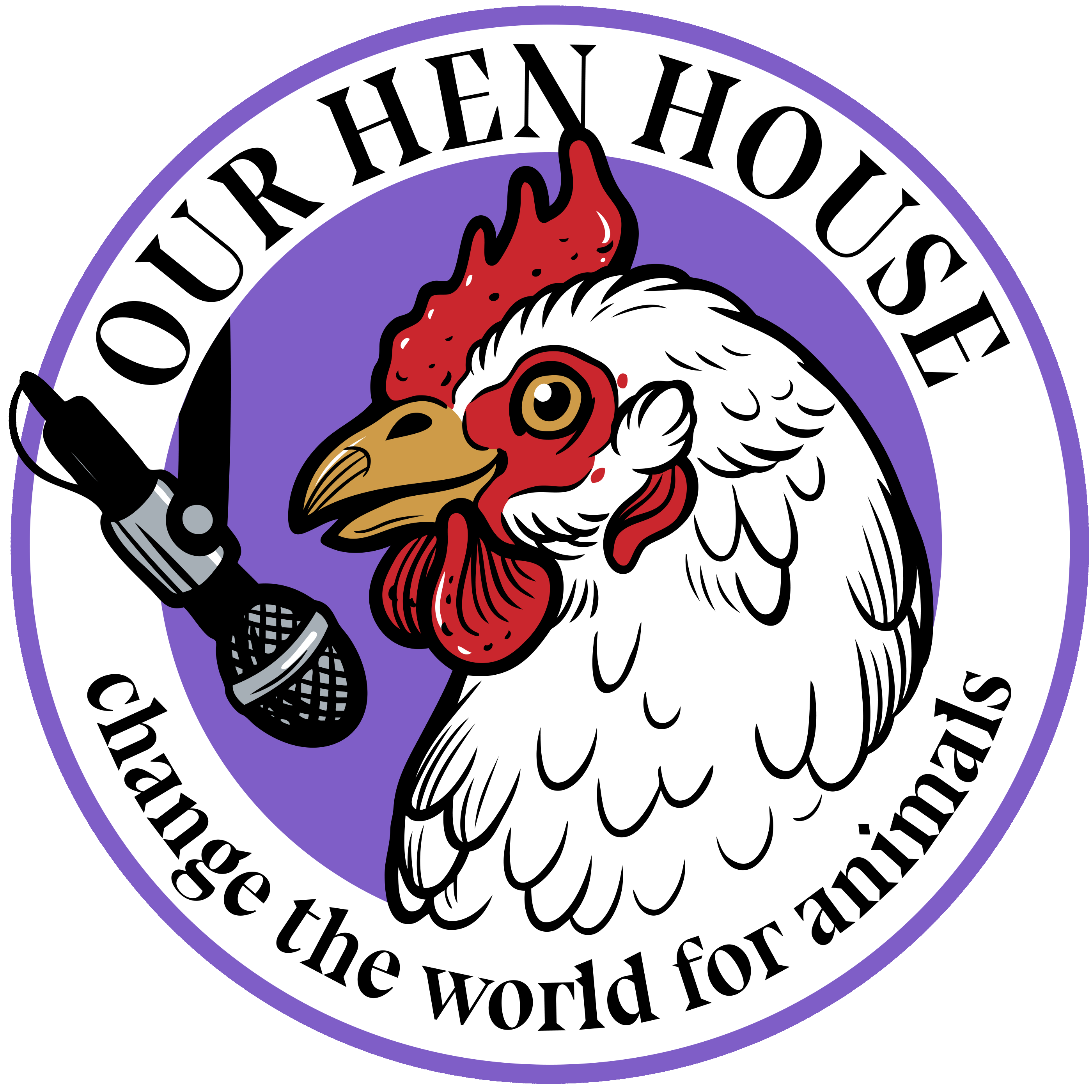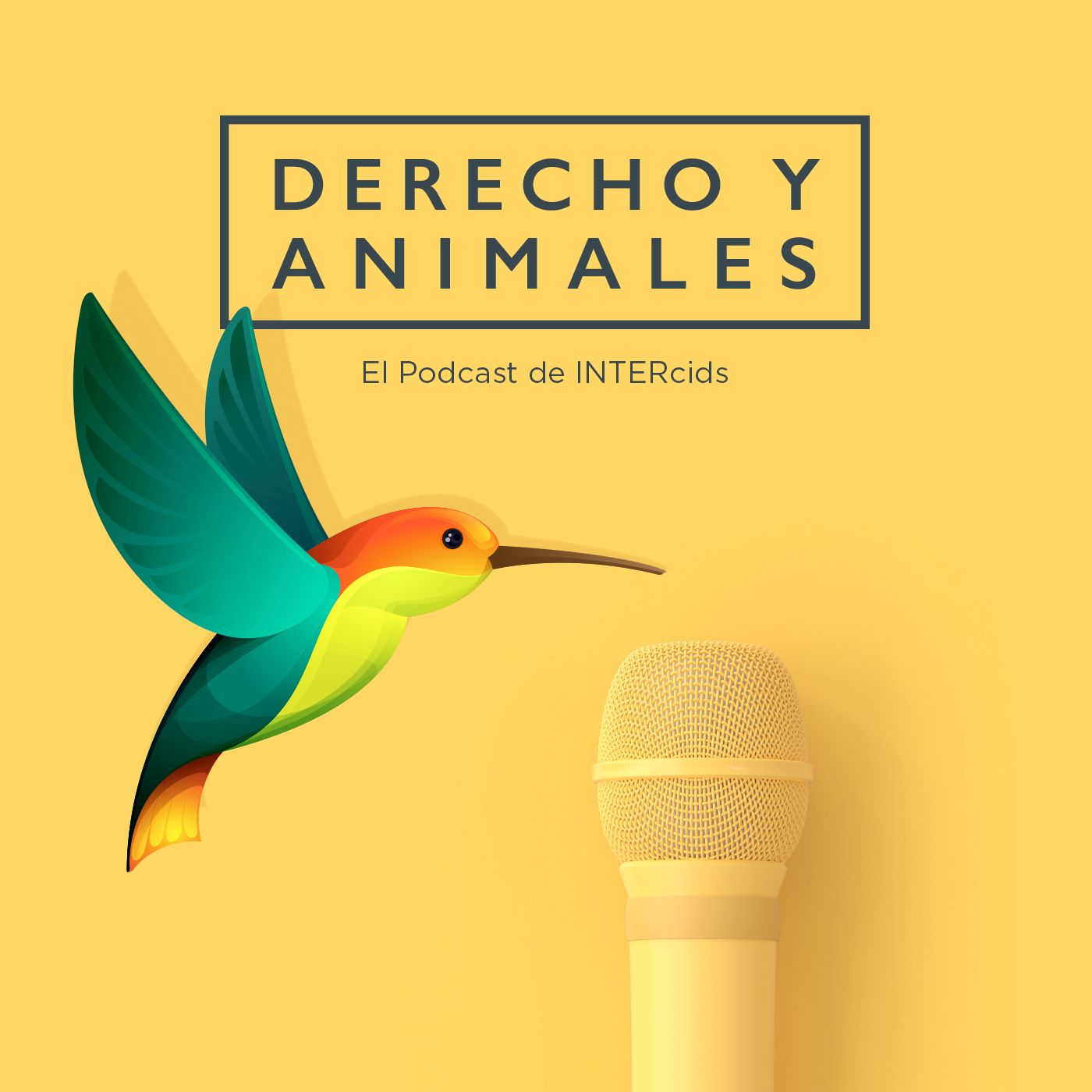
The Animal Turn
Animals are increasingly at the forefront of research questions – Not as shadows to human stories, or as beings we want to understand biologically, or for purely our benefit – but as beings who have histories, stories, and geographies of their own. Each season is set around themes with each episode unpacking a particular animal turn concept and its significance therein. Join Claudia Hirtenfelder as she delves into some of the most important ideas emerging out of this recent turn in scholarship, thinking, and being.
The Animal Turn
Bonus: Mother with Yamini Narayanan
Yamini Narayanan is back on the show, this time to talk to Claudia about her book Mother Cow, Mother India. They focus their discussion on the concept of “Mother” and what it means for cows in India. They touch on the implications of cows being sacralised as mothers of the Hindu nation and what cows’ daily lives, as mothers, are like.
Date Recorded: 25 April 2023.
Yamini Narayanan is an Associate Professor of International and Community Development at Deakin University, Melbourne. Her new book Mother Cow, Mother India explores the nexus between dairying and right-wing authoritarianism that underpins India’s cow protection politics. Her work is supported by two Australian Research Council grants. Yamini is currently researching animals in enforced and coercive labour in India’s brick kilns, exploring an anti-anthropocentric politics of poverty. She is a lifelong Fellow of the Oxford Centre for Animal Ethics, an honour that is conferred through nomination or invitation only. Find out more about Yamini on Deakin University’ website and connect with her on Twitter.
Featured:
Mother Cow, Mother India by Yamini Narayanan, The afterlives of the lively commodity by Kathryn Gillespie; The War Against Animals, by Dinesh Wadiwel; Every Twelve Seconds by Timothy Pachirat; Objectification by Martha Nussbaum; Life for Sale, by Rosemary Collard.
Thank you to Animals in Philosophy, Politics, Law and Ethics (A.P.P.L.E) for sponsoring this podcast; Gordon Clarke (Instagram: @_con_sol_) for the bed music, and Jeremy John for the logo. This episode was edited by Christiaan Menz and produced by the host Claudia Towne Hirtenfelder.
A.P.P.L.EAnimals in Politics, Law, and Ethics researches how we live in interspecies societies and polities.
International Women's Podcasting Awards
The Animal Turn is proud to have been shortlisted in the International Women's Podcasting Awards.
Disclaimer: This post contains affiliate links. If you make a purchase, I may receive a commission at no extra cost to you.
The Animal Turn is hosted and produced by Claudia Hirtenfelder and is part of the iROAR Network. Learn more on our website.
- Leave a Review on Podchaser
- Check out The Animal Turn Merch.
- Support us on Patreon, Buy Me a Coffee, and Buzzsprout.
00:00 - Introduction
- Welcoming back Yamini Narayanan for the second time.
- Mother Cow, Mother India is a phenomenal piece of work.
- Yamini Narayanan is an Associate Professor of International and Community Development at Deakin University, Melbourne. Her new book Mother Cow, Mother India explores the nexus between dairying and right-wing authoritarianism that underpins India’s cow protection politics. Her work is supported by two Australian Research Council grants. Yamini is currently researching animals in enforced and coercive labour in India’s brick kilns, exploring an anti-anthropocentric politics of poverty. She is a lifelong Fellow of the Oxford Centre for Animal Ethics, an honour that is conferred through nomination or invitation only. Find out more about Yamini on Deakin University’ website and connect with her on Twitter.
- Conversation today is centred on the idea of mother, ideologies and materialities.
02:57 – Welcome and about the Book
- First person to be back on the podcast twice.
- Focusing on the book but centering on the concept “Mother”
- Grew up with a lack of awareness of animals
- In 2014 worked on a new research project and this was around the time the Hindu Right asserted itself in Indian politics and a specific form of othering Muslims started and this implicated cows too
- Cow protectionism and animal activism operate differently to one another, activists have an investment in all times of animal well-being.
- Brahmin caste is traditionally associated with cow protectionism, so “had to tread this landscape carefully” – Yamini
- A resistance to the simple story.
09:00 – Cow Protectionism and Animal Rights: Cow as a Political Symbol
- A key difference between cow protectionism and animal activists.
- Cow protectionism goes back to India’s colonial time and its independence movement, anxiety over when the British leave.
- Strong secular movement in India and the Hindu Right rejected from the start, and they have finally come to power in India after 75 years
- The feminisation of the Hindu state was one of the approaches the Right took – Mother India as a Woman and Mother India as a Lactating Cow.
- Hinduism considers all life as sacred, “cow, per se, is not unique in the theological landscape but in the political landscape the cow emerges as the meta-animal” – Yamini
- Animals are also born into castes, not just humans, so animals and humans are intricately connected in this hierarchical system.
- Cow is mobilized as a symbol of Mother India.
- Nationalism is a project of inclusion and exclusion.
14:40 – Caste Systems, Hierarchy, and Labour
- Highly dehumanizing and abjecting landscape
- An entrenched oppression
- “It I read as a socio-biological truth,” Yamini “so that makes it even more entrenched.”
- Different types of labour associated with different caste systems
- “The dairy production continuum is a vast continuum,” Yamini
- Kathryn Gillespie – The afterlives of the lively commodity
- There are privileged people in this continuum – the key distinction is between the so called untouchable castes and everyone else – “the most oppressive interface,” Yamini
- Dinesh Wadiwel, the War Against Animals, talks about how transportation is significant part of value adding
- People who work underground doing the risky labour of transporting cows to slaughter and slaughter are likely to be marginalised people
- Pachirat, Every Twelve Seconds, notes the same, its always the marginalised labour at the slaughter end of production.
- Need to speak about human rights and animal rights issues together
21:07 – The Variability of Mother
- Cows are rhetorically used as mothers but they are also materially mothers
- Mother is a treasured relationship in intra-human relations so calling a cow mother makes it sound like there is no harm.
- Labelling a being as a mother beyond their responsibilities and attachments between a mother and her child.
- This is non-innocent and exploitative.
- The labeling of women as mother or as wives is often attached to cultural responsibilities and also explains some of the backward status of women in the human development index in India.
- There is a political objectification of women as mothers can sometimes severe the bond between mother and child.
- Martha Nussbaum speaks about processes of objectification and all forms of objectification are violent unless there is informed consent
- The sacralisation of cows is violent, and the motherhood mantle is violent.
27:00 – The Sacred Cow Mother
- India has a unique space in people’s imaginations, even in terms of how cows are positioned as sacred.
- “Being sacred really doesn’t do the cows any favours in India,” Claudia
- The idea of sacred being liberatory ethic is deeply unfounded.
- Child worship would now be considered a child right’s abuse.
- When you worship “you are imposing a particular identity, and attached to that identity is a way of being, and that is completely at the expense of your natural way of being,” Yamini.
- It’s an essentialist move that shapes your autonomy.
- “You have to do whatever the script is, and whatever the script is your life becomes” Claudia.
- It is an act of domination.
31:20 – Politics of Identification
- You have to question the stakes and this is where identity politics come into play.
- Politics of identification – someone identity is reliant on the politics of identification with another being living in a certain way. It is not only inherent to one’s life but how another being lives.
- Not benign.
- These animals become nothing but as a sacred thing.
- Rosemary Collard, Life for Sale, talks about commodity production and how you reduce an animal to a use value.
- Sacralization is a form of use and control.
- This is related to de-bovinization
34:39 – Dehumanization and Debovinization
- You are de-personifying and de-subjectified as a being, you are erasing the essential characterises of the collective and the individuals.
- De-subjectification is key to exploitation.
- Caste has the capacity to do both.
- Dehumanization is generally suffered by humans who are vulnerable but debovinization happen to even animals who are seemingly revered.
- By elevating a cow as a mother or a god you de-subjectifying them
- De-animalization might be useful broadly but debovinization speaks to the specific vulnerabilities of bovines. Important to not abstract all animals, they don’t necessarily share all the same vulnerabilities.
- Important to specify but this is an important way to speak about forms of political oppression.
40:10 – Being a Cow Mother
- To be a cow mother is to lose your child instantly and to lose the right to suckle.
- Cows who are pregnant are often malnourished and cows often lose their cows during the pregnancy and they can’t deliver
- Calves are born malnourished.
- High rates of infant and mother mortality among humans and cow in India.
- Girl calf will be fed formula but the male calf will be starved to death.
- Calves are used in the dairy industry for cross-breeding and to help milk flows. Calves suckle for ten seconds and then are pulled away “that moment of separation happens over and over,” Yamini.
- Asked for one calf to feed, and they feed for 27 minutes – “a wonderous act, the simple act of suckling,” Yamini
- Hyper stress and anxiety
- Feeding is chronically denied.
- Denied meaningful relations, being denied to touch each other
- Unique bond between mother and calf, but other cows try to help calves that are not theirs.
- The inability to fulfill these urges is full of heartbreak and trauma.
- Separation happens in numerous places.
51:39 – Ethnographic Research and Access
- How did you do this? How did you get so much access?
- The industry is not as securitized in India but it is becoming harder.
- Being a social scientist helped, there is an ease in being ignorant.
- Asking mundane questions and losing your inhibitions is crucial in ethnography.
- Brahmin status because it seems in line with cow protectionism
- Cow Protectionism is in the interest of the Hindu state, not animals.
- Would have liked to have focused more on the calf, there is a lot to be said about the trauma of the calves
- Different bovines have very different life experiences.
- The experiences of the girl calf is often not mentioned and there is a lot to be learned about the trauma of the girl calf.
58:28 – Quote
- Yamini Narayanan leaving a farm and there was a cow giving birth
- “She’s about to give birth, first time,” said the owner, who was kneeing and observing her udders closely, even as I looked at her wide eyes, fearful and in pain. “Less than forty-five minutes now, I would say.”….”You can stay and watch if you like,” added the man. I paused. “How quickly will you remove the calf?” I asked. “Immediately,” the man nodded. “We will give her a few minutes to clean, and then immediately remove. One of the workers will give the calf its first feed from a bottle.” “Not even the first feed from the mother?” I asked. “No,” he replied. “We encourage no relationship between the mother and child. I thanked the owner and we quickly walked out. As we left the gate, I noticed something I had not seen earlier in the evening, but which is a common sight in most dairies and gaushalas in India – a tall statue of the blue-skinned Lord Krishna playing a flute as he leaned against a beautiful white cow. Then, as now, her calf was nowhere to be seen; she was frozen in time in her role as mother, solely to the human” (page 116-117).
01:00:44 – What are you currently working on?
- Looking at the brick industries in India, “there is not one innocent brick,” Yamini
- Human rights abuses and equid labour
- Bringing in new materiality into conversation
- Can’t speak about human and animal labour and oppression from one another.
- Fraught landscapes




















